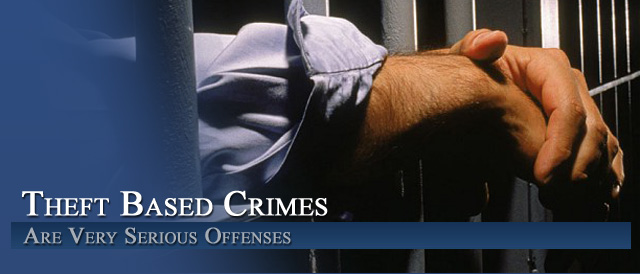




Colorado Shoplifting Laws And Common Defenses To Colorado Shoplifting Crimes Part II of II
By Colorado Shoplifting And Theft Crimes Criminal Defense Lawyer – Attorney – H. Michael Steinberg
Colorado Shoplifting Defense Information – Colorado Shoplifting Laws Explained – Part II
Shoplifting Laws And Common Defenses To Colorado Shoplifting Crimes – Let’s Start This Part II With The Different TYPES of Shoplifting
The most common approach to legal analysis of a common shoplifting case is to break it down into one of basically five types of shoplifting.
Number 1 – The Suspect Intentionally Takes Merchandise.
The simplest and most common form of shoplifting in Colorado is the person who appears to purposely remove merchandise from a store without paying for it. Here the State must prove that the person had an intent to deprive the store or the owner of the merchandise without paying for it.
Number 2 – The Suspect Conceals The Merchandise In the Store
Here it gets a little more complicated. In this second type of shoplifting – the person appears to purposely try and conceal the items – again – with the intent to deprive the owner of the store of the merchandise without paying for it.
Colorado has a special law that applies to this situation and that helps the DA – prosecutor to prove the case. Here is the law:
18-4-406. Concealment of goods
If any person willfully conceals unpurchased goods, wares, or merchandise owned or held by and offered or displayed for sale by any store or other mercantile establishment, whether the concealment be on his own person or otherwise and whether on or off the premises of said store or mercantile establishment, such concealment constitutes prima facie evidence that the person intended to commit the crime of theft.
HMS – Analysis
This law sets up an evidenciary “presumption” that if you purposely conceal unpurchased merchandise of any store, either on the premises or outside, you are presumed to have performed that action with the intention of depriving the merchant of the possession of that merchandise without paying for it.
Number 3 – A Suspect Alters, Transfers or Actually Cuts Off And Removes A Price Tag Or Label
In this scenario – use of a tool can expose the suspect to the enhanced and additional charge – a felony level 5 – of Possession of Burglary Tools – 18-4-205.
18-4-205. Possession of burglary tools
(1) A person commits possession of burglary tools if he possesses any explosive, tool, instrument, or other article adapted, designed, or commonly used for committing or facilitating the commission of an offense involving forcible entry into premises or theft by a physical taking, and intends to use the thing possessed, or knows that some person intends to use the thing possessed, in the commission of such an offense.
(2) Possession of burglary tools is a class 5 felony.
Also there is this additional charge – it is separate and in addition to the theft charge:
18-4-417. Unlawful acts – theft detection devices
(1) (a) It is unlawful for any person to knowingly manufacture, distribute, or sell a theft detection shielding device or a theft detection deactivating device with the knowledge that some person intends to use the device in the commission of an offense involving theft.
(b) It is unlawful for any person to possess a theft detection shielding device or a theft detection deactivating device with the intent to use the device possessed, or with the knowledge that some person intends to use the device possessed, in the commission of an offense involving theft.
(c) It is unlawful for any person to knowingly deactivate or remove a theft detection device or any component thereof in any store or mercantile establishment without authorization prior to purchase.
(2) As used in this section:
(a) “Theft detection deactivating device” means any tool, instrument, mechanism, or other article adapted, designed, engineered, used, or operated to inactivate, incapacitate, or remove a theft detection device without authorization. “Theft detection deactivating device” includes, but is not limited to, jumper wires, wire cutters, and electronic article surveillance removal devices.
(b) “Theft detection device” means an electronic or magnetic mechanism, machine, apparatus, tag, or article designed and operated for the purpose of detecting the unauthorized removal of merchandise from a store or mercantile establishment.
(c) “Theft detection shielding device” means any tool, instrument, mechanism, or article adapted, designed, engineered, used, or operated to avoid detection by a theft detection device during the commission of an offense involving theft. “Theft detection shielding device” includes, but is not limited to, foil-lined or otherwise modified clothing, bags, purses, or containers capable of and for the sole purpose of avoiding detection devices.
(3) Any person who violates any of the provisions of subsection (1) of this section commits a class 1 misdemeanor.
In this scenario – the person alters, transfers or removes the price tag with the same intent discussed above.
Number 4 – The Suspect Transfers Merchandise Into Another Container
Here the suspect is seen removing an item from a more expensive container and intentionally hiding it in another container. If this action is done to steal or pay less for the item – it is theft.
Number 5- Tandem Theft – The Inside Job – Under- ringing The Merchandise
Here the shoplifter has a friend or colleague who works for the store – and the crime is committed when the store employee “under-rings” the value of the merchandise. Both individuals are guilty of the crime of theft and the additional crime of conspiracy to commit theft.
The DA – must still prove that the two acted “in concert” and that the under-ringing was done intentionally by the cashier.
Colorado Shoplifting Laws And Common Defenses To Colorado Shoplifting Crimes Part II of II
Shoplifting Charges Are Typically Prosecuted In Colorado’s Municipal Court Systems
Each city in Colorado has a City – or Municipal Court. Shoplifting – is typically charged in those lower courts. The punishment – penalty for Colorado municipal charges is no more than $1,000.00 and or Up To One Year In Jail.
If you are convicted in a Colorado Municipal Court you will still have a conviction for a theft and you will still have a criminal record.
The Nightmare Scenario – When A Colorado Shoplifting Charges Becomes A Felony Strong Armed Robbery
The basic shoplifting case can quickly turn felony when the shoplifter – in an attempt to steal the merchandise uses any type of force to commit the crime of shoplifting. A DA can then add the felony charge of “strong arm” robbery.
In the shoplifting turned robbery situation there is a possible prison term of from up to six years in the Department of Corrections.
Colorado State defines the charge of 18-4-301 Robbery as follows:
18-4-301. Robbery
(1) A person who knowingly takes anything of value from the person or presence of another by the use of force, threats, or intimidation commits robbery.
(2) Robbery is a class 4 felony.
The Cases Interpreting This Law
Colorado case-law has describes the basic nature of robbery as “the application of physical force or intimidation against the victim at any time during the course of a transaction culminating in the taking of property from the victim’s person or presence.”
Therefore – and here is the rub – if a suspected shoplifter pushes away a security guard or a store worker – takes the item and then tries to escape the store to beat a shoplifting charge, then he can also be charged with robbery.
Quick Note: Under New 2013 Colorado Laws – Petty Thefts and Municipal Court Convictions Can Be Sealed After Three Years
As of mid 2013 – a Colorado municipal ordinance conviction can be expunged after a three year waiting period.
Colorado Theft Shoplifting Convictions and Deportation – Immigration Consequences
The impact of even a minor crime such as shoplifting on an undocumented alien’s status is of major concern. It is an anomaly of federal law that far more serious crimes have absolutely no immigration consequences while “rimes of moral turpitude” such as theft are considered aggravated felonies making such individuals removable.
Under United States Immigration Law, a non-citizen alien can be deported if that person is “convicted” of a crime that involves moral turpitude. Because shoplifting is classified as crime of moral turpitude, fighting this charge takes on even greater importance.
Helping To Explain Shoplifting To The DA And The Court – The Role of Mitigation
Shoplifting charges are often the result of a mistake in judgment. There are many reasons why a person steals – loss of a job – a desperate need for food for a family or other mental health reasons. There are times when an individual suffers from OCD (obsessive compulsive disorder) that leads to an uncontrollable psychological urges to steal.
For still others shoplifting is caused by the very real disorder of “kleptomania .” These cases require a complete mental health evaluation that is then utilized to plea bargain the case for a better result. No matter what the reason for the shoplifting – it is the lawyer’s job to find out what drove the client to steal – and then address – head on – he issue with the DA and the Court with solutions that insure no further crimes will be committed.
What Is The Evidence Most Often Used To Prove Shoplifting In Colorado?
How are charges of shoplifting commonly proven in a Colorado court of law?
What follows are some common sources of evidence in Colorado shoplifting cases:
-
Store video camera – video and audio
-
Testimony from the security staff
-
Testimony from the loss prevention staff
-
Other Eye -Witness testimony
-
Statements made by the suspect – pre and post Miranda
Proving – The Classic Sequence Of Shoplifting – What Is The Typical Scenario?
The defendant/shoplifter is seen approaching the merchandise.
The defendant/shoplifter selects the merchandise.
The defendant/shoplifter conceals, carries away, or converts the merchandise.
The defendant/shoplifter is seen in a continuous observation by the witness or witnesses.
The defendant/shoplifter fails to pay for the merchandise
The defendant/shoplifter is approached by the merchant outside the store boundaries.
The Role of Intent And Issues Of Mental Or Physical Illness
In the common shoplifting case, the intent of the suspected shoplifter is usually proven circumstantially. Therefore the role of mental illness, alcohol or drug-related issues, as well as other forms of medication are the focus – if these conditions exist – of establishing that the shoplifter did not actually intend to steal the merchandise.
If You Are Stopped And Accused Of Shoplifting In Colorado – Some Thoughts
If I am stopped in a store for suspected shoplifting – how should I act?
Loss prevention “people” are trained never to approach a suspected shoplifter unless they are certain the crime can be established. But they are often wrong. At times they approach suspects who “look suspicious” but have not actually shoplifted. These are not the brightest of our citizenry and often let their authority go to their heads.
Always – always – always remain calm. Don’t run. After identifying yourself and protesting that you have done nothing – stop talking and ask for a lawyer. Cooperate with the Loss Prevention person and accompany him or her to the customary “back room.” wherever that is.
That person is NOT bound by the rules as the police. Before questioning you – they do NOT have to “Mirandize you” or give you your rights. He or she will immediately start to question you. It would be wise to ask for a witness to be present such as another store employee or a manager during these attempts to interrogate you .
Never SIGN or WRITE Anything
The store personnel are trained to get you to “write out your statement”… to give YOUR “side of the story.” Do not fall for this ploy – it is an attempt to trap you into admissions that can later be used as evidence against you in court. Make no oral OR written statements to ANYONE.
If the security person writes out the “incident report and then gives it to you to sign – again – do NOT sign it.
Accomplice Liability – “I was not shoplifting, but my friend – who was with me was shoplifting and I did not stop him. Can I be prosecuted for shoplifting too?
The answer is an adage in the law that says “mere presence” at the scene of a crime without more – means no criminal liability. Therefore if are completely unaware of the shoplifter’s activities and did not participate in the crime in any way then you should not be prosecuted.
Under a complicity or accessory theory you do not have to be the person actually stealing the merchandise to be charged and convicted of shoplifting or retail theft.
If you “aid and abet” someone else who shoplift – such as acting as a lookout, distracting the store employees while your friend shoplifts, or acting as a driver to assist the thief in his or her getaway you can be charged with shoplifting.
Zero Tolerance For the Major Chain Stores
Because of the critical role of major chain stores in supplying local cities and counties with sales tax revenue – these stores have great political weight with local government which includes law enforcement
It is true that stores such as Nordtroms, Wal-Mart, Target, K-Mart, Dillards, and Macys as well as most other popular major retail chain show no mercy – zero tolerance – and prosecute ALL suspected shoplifters “to the fullest extent of the law.”
Will The Offer To Pay For The Items – Paying “Restitution” Help To Stop The Charge Of Shoplifting?
In the general “blitz” of talking that follows the arrest of most novice shoplifters – inevitably – there will be the offer to pay for the stolen merchandise. The offer – if you make it – will be used as evidence of guilt at the trial and should never be made. It will NOT stop a criminal shoplifting charge from being filed against you.
Defenses To A Charge Of Shoplifting May Include Some Of The Following
There are numerous defenses your criminal defense lawyer may explore employing when fighting a shoplifting charge. Defenses to shoplifting in Colorado fall into two basis categories:
(1) factual defenses are derived from the facts of the case.
and
(2) legal defenses arise as a result of legal analysis of the facts.
The Best Defense – Just “Shut Up” – Exercise Your Right To Remain Silent DURING The Investigation Phase
The very first way you can help yourself in this situation – you :first defense” is to remain silent if and when you are questioned. Your second is to request a lawyer – whether you have one in mind or not. A lawyer will protect your rights and make certain to stop the questioning by the police. The loss prevention staff are not required to “give you” your constitutional rights – ALWAYS keep that in mind.
The aggressive use of “bullying tactics” are common -so be alert and exercise your first and second defenses.
You Never Intended To Steal – The Lack of Intent Defense
Placing an item in a pocket is a mistake – it is evidence of theft and there are often times when – not thinking, .you may placed merchandise where it should not be and then forget about it… then simply leave the store without paying for it. ANYONE would assume you were stealing .
In this situation – which is more common than you think – in our busy world we are often in the midst of multitasking – that is focusing on many things at one time. Absent mindedness is not a crime. In any shoplifting case the prosecution must prove beyond a reasonable doubt that you intended to permanently deprive the store of the goods. If you can make out a case of absentmindedness – an accident – you accidentally walked out forgetting to pay, then you are not guilty.
The Defense Of Mistaken identity.
The use of long distance cameras – long distance binoculars – and the like – often leads to mistakes. If you are suspected of theft and are actually the wrong person remember the store and the DA have the burden of proving you are the right person. Good defense lawyers can raise a reasonable doubt that you were NOT the person who shoplifted the items. Most of the time – this will lead to the dropping of charges against you.
The Level Of Shoplifting Charge Depends On The Value Of The Item Taken
Here the lawyer will attack the value assigned to the item with the goal of reducing the level of crime charged and the subsequent possible punishments that follow that value (LINK)
Attacking The Credibility Of Store Security Personnel
As in all eyewitness evidence based cases, if clear video evidence does not exist, the credibility of the arresting – investigating staff is at issue. The opportunity to observe you – the location of the observation – the descriptions of your actions – intervening facts – are all fair game both during plea bargaining negotiations and at trial – if a trial becomes necessary.
What was the officer’s opportunity to observe? -what was the lighting like – where was the camera placement – were there obstructions such as physical displays or other store patrons present nearby? What were the angles of observation – were there other concurrent distractions or other investigations, going on at the time – and the like?
Legal – Technical Defenses
There arise when law enforcement exceed their constitutional authority.
Some of these defenses include:
(1) The Lack of Probable Cause To Arrest
(2) An Unreasonable Search and Seizure of Your Person or Your Car
(3) The Lack of Probable Cause in the Affidavit for Arrest or Search Warrant Issued by a Judge in the Case
(4) A Challenge to Incriminating Statements You May Have Made Which Statements Were Made as a Direct Result of Undue Influence, Duress and Coercion or in Violation of Your 5th and 6th Amendment Rights.
Hiring The Best Denver Colorado Criminal Defense Lawyer For Shoplifting Cases
ABOUT THE AUTHOR: H. Michael Steinberg – Email The Author [email protected]
If you are charged with Colorado Shoplifting Laws And Common Defenses To Colorado Shoplifting Crimes Part II of II, please call our office. The Law Offices of H. Michael Steinberg, in Denver, Colorado, provide criminal defense clients with effective, efficient, intelligent and strong legal advocacy. We can educate you and help you navigate the stressful and complex legal process related to your criminal defense issue.
H. Michael Steinberg, is a Denver, Colorado criminal defense lawyer with over 40 years of day to day courtroom experience – specializing only in Colorado Criminal Law along the Front Range. He will provide you with a free initial case consultation to evaluate your legal issues and to answer your questions with an honest assessment of your options. Remember, it costs NOTHING to discuss your case. So call now for an immediate free phone consultation.
Helping Clients To Make Informed Decisions In the Defense of Colorado Criminal Cases. Colorado Defense Lawyer H. Michael Steinberg provides solid criminal defenses for clients throughout the Front Range of Colorado – including the City and County courts of Adams County, Arapahoe County, City and County of Boulder, City and County of Broomfield, City and County of Denver, Douglas County, El Paso County – Colorado Springs, Gilpin County, Jefferson County, Larimer County, and Weld County,…. and all the other cities and counties of Colorado along the I-25 Corridor… on cases involving …Colorado Shoplifting Laws And Common Defenses To Colorado Shoplifting Crimes Part II of II.
Other Articles of Interest:
- Concealment of Goods 18-4-406 and Questioning of Persons Suspected of Theft 18-4-407
- Colorado Shoplifting Laws And Common Defenses To Colorado Shoplifting Crimes Part I of II
- Is Shoplifting The Same As Theft Under Colorado Criminal Law?
- Colorado Shoplifting Law – How Far Can The Store Go To Make An Arrest?
- Colorado Theft Crimes 18-4-401













